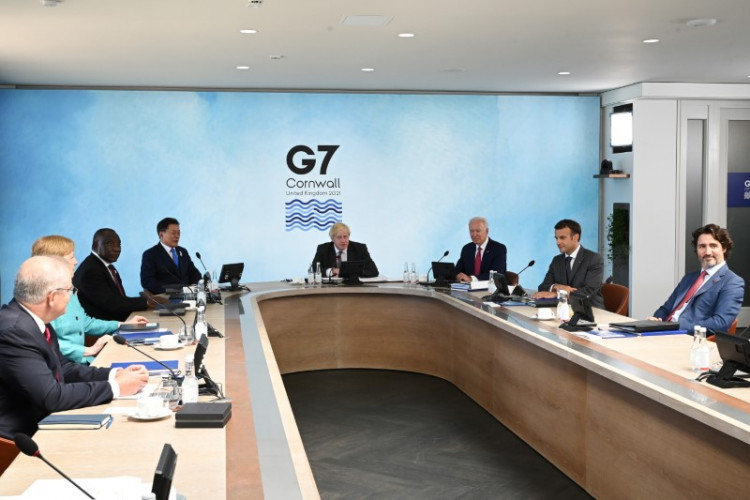The G7 (Group of Seven) group of wealthy democracies revealed Monday their intention to compete with China's formidable Belt and Road Initiative by financing approximately $600 billion for global infrastructure projects in developing nations.
The Partnership for Global Infrastructure and Investment, disclosed with great excitement by United States President Joe Biden and G7 allies from Canada, Germany, Italy, Japan, and the European Union, aims to fill a massive void left by communist China's use of economic clout to extend diplomatic tentacles to the farthest corners of the globe.
Biden, highlighting the geostrategic rationale underlying the initiative, stated that such investments "provide rewards for everyone, including the American people and the people of all our nations."
Biden said that the goal was for the U.S. to contribute $200 billion, with the rest of the G7 contributing $400 billion by 2027.
He added that funding the types of infrastructure that China currently dominates, ranging from roads to ports in remote locations, is not "help or charity."
The role of China's democratic adversaries throughout the world is "an opportunity for us to communicate our hopeful vision for the future," Biden said, and for other nations to "experience for themselves the tangible benefits of collaborating with democracies," he pointed out.
Ursula von der Leyen, the head of the European Commission, reiterated this sentiment, stating, "It is up to us to deliver a positive, robust investment impulse to the world, to demonstrate to our partners in the developing world that they have a choice."
Although China was not mentioned by name, the rivalry loomed large over the leaders' presentation, a revival of a Western infrastructure fund that Biden proposed at the G7 summit in Britain last year.
In contrast to China's state-run BRI program, the proposed G7 funding would mostly depend on private enterprises' willingness to commit to significant investments, and is hence uncertain.
In this capitalist vs communist scenario, according to US officials, recipient nations will be able to escape debt traps and other claimed Chinese coercive techniques.
The U.S. government and its partners will aim for $600 billion by 2027 "via grants, federal finance, and leveraging private sector investments," the White House said.
The U.S. and its G7 partners will also attempt to mobilize hundreds of billions of dollars in additional money from other like-minded countries, multilateral development banks, development finance organizations, sovereign wealth funds, and others.
A senior US official conceded that the West is now in second position, behind China.





